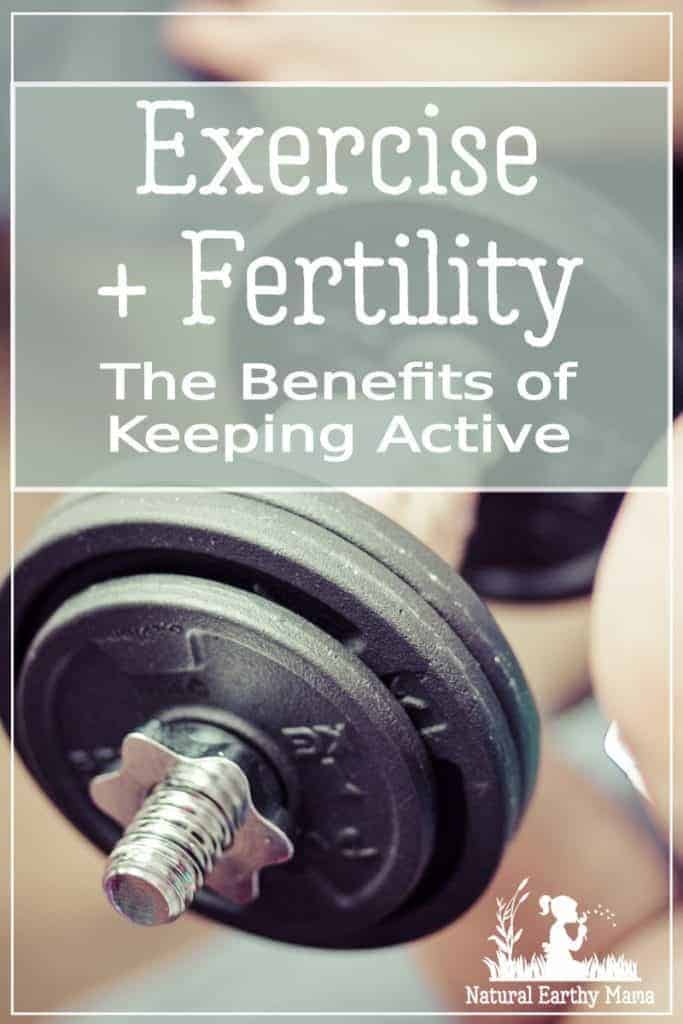 A good exercise program is essential to any one trying to get pregnant, right?
A good exercise program is essential to any one trying to get pregnant, right?
But doesn’t too much exercise ruin your hormones? Confused? Here is the lowdown on exercise and fertility for you.
Please read: This information is provided for educational purposes only and is not intended to treat, diagnose or prevent any disease. We encourage you to make your own health care decisions in partnership with a qualified health care professional.
This post contains affiliate links, this means at no extra cost to you, we make a commission from sales. Please read
our Disclosure Statement
Exercise for Fertility: The Benefits of Keeping Active for Trying to Conceive
Article includes:
Can exercise prevent pregnancy?
Can exercise stop your menstrual cycle?
Exercise: How much is too much when trying to conceive?
Can exercise cause miscarriage in early pregnancy?
Can exercise help you get pregnant?
Fertility Yoga
Exercises best for women trying to conceive
Can Exercise Prevent Pregnancy?
One of the questions I get asked is “But can’t exercise make you infertile?” And the answer is actually yes, there is such a thing as too much exercise.
Women that exercise excessively can (and do!) notice a decline in their fertility. Weight loss and weight gain, can both cause disruption to your hormones, as can intense exercise over a long period of time.
One study that compared the cycles of exercising and non-exercising women found that among exercising women, 25 percent of cycles were anovulatory and 25 percent of cycles had short luteal phases. Only 48 percent of exercising women’s cycles were normal! For comparison, 95 percent of non-exercising women’s cycles were normal (1).
In another study that compared exercising and sedentary women, sedentary women were found to ovulate much more consistently than exercising women. Ninety-five percent of the sedentary women ovulated regularly, compared to only 32 percent for the exercising women (2).
Can Weight Loss Stop your Menstrual Cycle?
Yes, your menstrual cycle occurs thanks to a complicated pattern of hormonal changes and chain reactions that occur each month.
Sudden and sustained loss of weight due to excessive exercise, can disrupt these chain reactions and cause your periods to stop.
However, losing a small amount of weight is unlikely to affect your menstrual cycle badly.
In fact, in overweight women, particularly those with Polycystic Ovarian Syndrome, periods often resume and become regular with weight loss.
RELATED POST: How to Cure PCOS
If someone loses a lot of weight over a prolonged period of time, they will likely lose a lot of body fat. In this case, your body will panic, it cannot grow a baby through this famine! So it shuts the whole system down.
The Mechanics of How Weight Loss Stops your Period
Sudden changes in weight can cause the hormone leptin, produced by fatty tissue, to drop, which can disrupt the menstrual cycle. Leptin also controls your hunger, that is why you feel SO HUNGRY on a typical “weight loss diet”.
Reduced fat stores also reduce thyroid hormone levels but at the same time cause an increase of cortisol, which has a knock on effect on the reproductive hormones.
Finally, weight loss can cause an increase in the hormone ghrelin, which, like leptin, causes a chain reaction resulting in a lowering in the release of luteinising hormone (LH) and follicle-stimulating hormone (FSH), which are crucial for the menstrual cycle to work properly.
This is why women with anorexia nervosa often lose their periods. They have incredibly low levels of body fat, and essentially, their body shuts down the systems that it doesn’t think it is healthy enough to support.
However, some women could potentially have a body weight in the “normal” range, and still stop menstruating due to having low amounts of body fat (that is, low levels of easily accessible energy stores) Despite not being underweight.
How Weight Gain Can Affect your Period Cycle
It is a bit crazy, but being overweight is just as disruptive as being underweight.
However, the mechanism is quite different.
When you have an excess of fat cells producing estrone, a type of estrogen, your body thinks you are already pregnant, you will stop ovulating.
But this excess of estrone continues to build up the womb lining. This can break down from time to time, causing a heavy and longer period when it does eventually arrive. If this is you, it is said that losing even just five percent of your body weight may mean your regular cycle returns.

Can Exercise Stop your Menstrual Cycle?
Yes it can. If you are a super-athlete there are two reasons why you may not be getting your period:
- Athletes tend to have very low body fat.
- Considerable exercise can put the body under considerable stress
RELATED POST: How Stress Affects Fertility
The way that physical stress can stop periods from occurring works in a similar way that mental stress can cause infertility.
The hypothalamic-pituitary-adrenal-ovarian axis is an amazingly complex system. Stress increases cortisol and cortisol, over time, alters the gut.
With leaky gut, the immune system is exposed to lots of toxins and allergens. This leads to widespread inflammation in the body, which leads to more cortisol and oxidative damage. And the high cortisol interferes with proper ovulation.
Try our 14 day Health Yourself, fertility boosting challenge!
There is a sweet spot for exercise, too little or too much can cause harm. Extreme athletes suffer from severe oxidative stress to their bodies and will suffer significant consequences.
Your period going AWOL in an athlete is a powerful message that the amount of exercise you’re doing is too much and that instead of benefiting the body, it is causing you harm.
Exercise for Fertility: How much is too much when trying to conceive?
Here are some ways your body will let you know if you’re headed for exercise burnout:
1. Decreased performance
2. Disinterest in exercise
3. Delayed recovery time
4. Insomnia
5. Weakened immune system
6. Absent or disrupted periods/cycles
These signs are all related to your body struggling with the load you are putting on it. Your body needs time to re-cooperate between sessions, and over using it and putting it under extreme stress is counter productive.
If you have PCOS or metabolic syndrome and your doctor has told you that you need to lose weight, chances are you are really struggling to do so.
It is OK, I understand. AND I want you to know you aren’t failing. You are fighting an uphill battle against many systems in your body who are trying to protect you from this famine. It has just gotten the wrong message.
RELATED POST: How to boost your fertility without losing weight
Exercising during your period is not bad, but it pays to listen to what your body is telling you. During your cycle your body naturally goes through periods of energy and times when you naturally have no get-up-and-go. That is OK, trust the instinct and rest when you need to rest.
Can Exercise Cause Miscarriage in Early Pregnancy?
Probably not. Most miscarriages happen due to an error in the DNA coding or cell devision that has resulted in an embryo that would not survive anyway.
There is very little that you can do to stop a miscarriage if you are already miscarrying, especially if it is a genetic error that is causing it.
The reason that you feel so tired and horrible at the beginning of a pregnancy (thanks to the progesterone) is that it is designed to slow you down and make you rest.
Stress, drugs, over exercising and shift work may all play a part in some miscarriages but the risk is small, and poorly studied.
Both the American Pregnancy Association and the American College of Obstetrics and Gynecology state that daily exercise should be a part of pregnancy, and exercise by itself is not reported as a cause of miscarriage.
You need to be sensible about workout intensity as you progress through pregnancy, but during early pregnancy your body is not severely altered by the changes occurring.
Most miscarriages occur within the first 13 weeks of pregnancy, and this is the time your body can still be most physically active. As always check with your doctor first.
Can Exercise Help you Get Pregnant?
Yes, exercise prior to, and during, conception is a great way of managing your blood sugars, hormones and stress levels. You do need to be wise about what types of physical exercise you are choosing to do if you are trying to get pregnant.
Conception-friendly exercise includes anything that doesn’t put too much strain on your body. This will vary from person to person. If you are terribly unfit and overweight, then what your body considers stressful will be a lot less than someone that is often fit and active.
If you are looking for exercise for fertility improvements so you can conceive fast, you don’t have to bust your gut and train for a marathon. In fact, I would highly recommend you avoid that all together!
Weight training has been shown to be particularly useful in women with PCOS. Strength training helps to combat insulin resistance (4) and it is something you can do at home if you prefer, you do not need a fancy gym membership!
Walking and swimming are both great low-impact options for improving fitness without stressing out your body. You want to avoid running and high intensity workouts for long periods, as these only increase the inflammation in your body – the opposite of what we are trying to achieve!
If you love that high intensity thing – try HIIT (high intensity interval training) just a couple of times per week. This is more in line with how our bodies are designed to handle stress, in short, sharp, intense bursts with recovery time in between.
Yoga and Tai Chi are Perfect for People Struggling with Infertility.
While it may not seem like ‘proper’ exercise from watching, you should give it a go.
IT IS NOT EASY.
Those slow gentle movements actually take a lot of skill, balance and strength. And at the same time you are using the power of your breath to slow your body down and swap it over to the ‘rest and digest’ state of being.
This is the only way science knows of to turn off the panic system and switch on the peace system in your body.
RELATED ARTICLE: How stress and panic affects our fertility
Exercise during ovulation, implantation and early pregnancy is fine to do, but be gentle with yourself if you are exhausted and are struggling to get out of bed.
Today you might be better off with the extra hour of sleep. Try some gentle exercise at lunchtime when you are feeling more alert.
According to the American College of Sports Medicine, if you are pregnant, do not continue to exercise if you have any of the following:
- Vaginal bleeding
- Severe chest pain
- Calf swelling
- Decreased fetal movement
- Amniotic fluid leakage
- Orthopedic limitations
- Are a heavy smoker
- Are extremely underweight
- Are morbidly obese
- Have heart disease
- Have lung disease
- At risk for premature labor
- Have pregnancy-induced hypertension.

Fertility Yoga – How Yoga can Improve your Chance of Pregnacy
Studies show that yoga can help reduce stress, which in turn, can affect fertility.
Some experts also believe that specific poses can help promote baby-making by increasing blood flow to your pelvis, stimulating hormone-producing glands, and releasing muscle tension.
Using yoga when trying to conceive is a great way of waking up in the morning and winding down at night.
There are several yoga asanas (positions) that can help boost fertility.
Exercises that are Best for Women Trying to Conceive:
- Walking
- Yoga
- Dancing
- Non-impact aerobics (NIA)
- Zumba – especially with a friend!
- Swimming or aqua-jogging
- Leisurely bike riding
- Weight lifting / strength training

Exercise for Fertility: The Benefits of Keeping Active for Trying to Conceive
If you’re looking to get pregnant but love working out, consider ways you can lower the intensity without losing out on your favorite parts.
General fitness not only increases your chances for conception, it also promotes a healthier pregnancy, delivery, and baby.
However, if you’re new to exercise, getting fit can offer a world of benefits outside of fertility. You’ll lower your blood pressure and blood glucose/insulin levels, as well as help manage your weight.
You might even reap some bonus benefits, such as better sleep and more energy.
The key is to start slow, keep exercising and listen to your body. Results from exercise can take time, so don’t overwork your body.
If you are overweight, try something like yoga to start with, combined with gentle walking and a fertility diet.




1 thought on “Best exercises for Fertility: The Benefits of Keeping Active for Trying to Conceive”